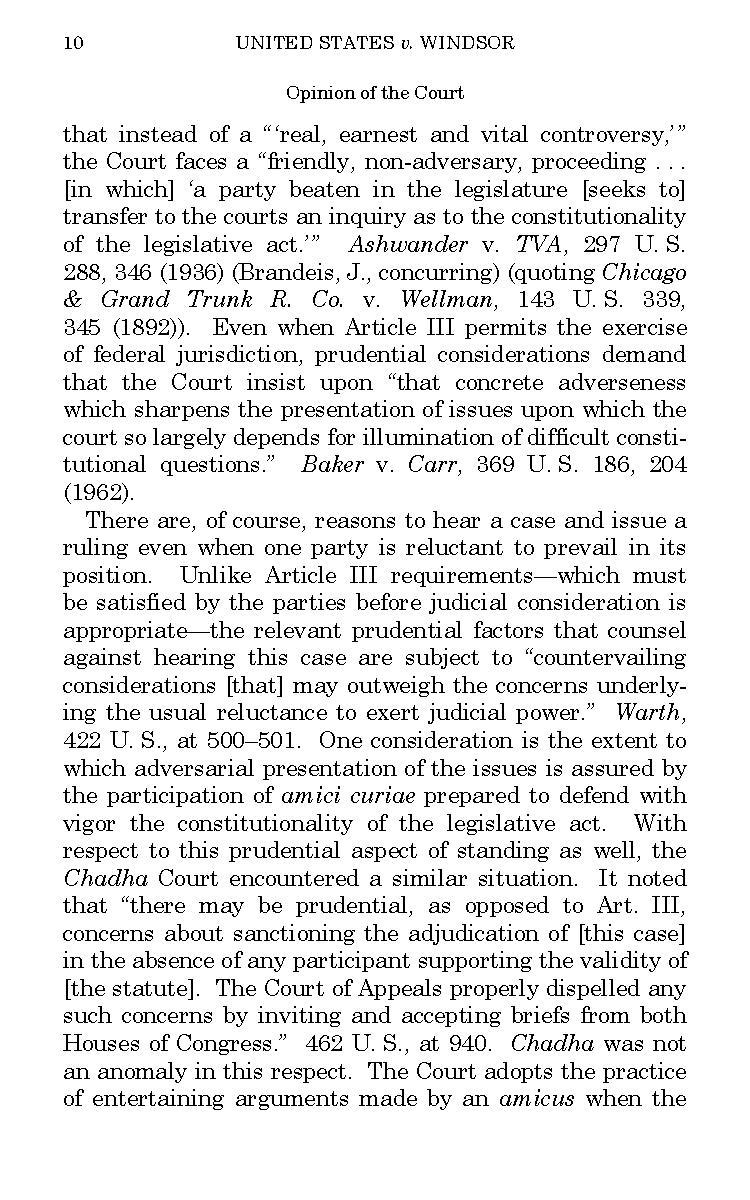that instead of a "'real, earnest and vital controversy,'" the Court faces a "friendly, non-adversary, proceeding ... [in which] 'a party beaten in the legislature [seeks to] transfer to the courts an inquiry as to the constitutionality of the legislative act.'" Ashwander v. TVA, 297 U.S. 288, 346 (1936) (Brandeis, J., concurring) (quoting Chicago & Grand Trunk R. Co. v. Wellman, 143 U.S. 339, 345 (1892)). Even when Article III permits the exercise of federal jurisdiction, prudential considerations demand that the Court insist upon "that concrete adverseness which sharpens the presentation of issues upon which the court so largely depends for illumination of difficult constitutional questions." Baker v. Carr, 369 U.S. 186, 204 (1962).
There are, of course, reasons to hear a case and issue a ruling even when one party is reluctant to prevail in its position. Unlike Article III requirements—which must be satisfied by the parties before judicial consideration is appropriate—the relevant prudential factors that counsel against hearing this case are subject to "countervailing considerations [that] may outweigh the concerns underlying the usual reluctance to exert judicial power." Warth, 422 U.S., at 500–501. One consideration is the extent to which adversarial presentation of the issues is assured by the participation of amici curiae prepared to defend with vigor the constitutionality of the legislative act. With respect to this prudential aspect of standing as well, the Chadha Court encountered a similar situation. It noted that "there may be prudential, as opposed to Art. III, concerns about sanctioning the adjudication of [this case] in the absence of any participant supporting the validity of [the statute]. The Court of Appeals properly dispelled any such concerns by inviting and accepting briefs from both Houses of Congress." 462 U. S., at 940. Chadha was not an anomaly in this respect. The Court adopts the practice of entertaining arguments made by an amicus when the
